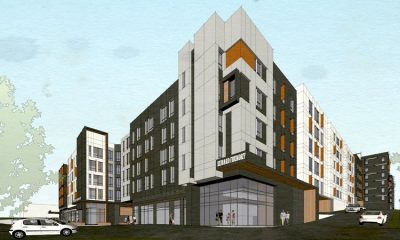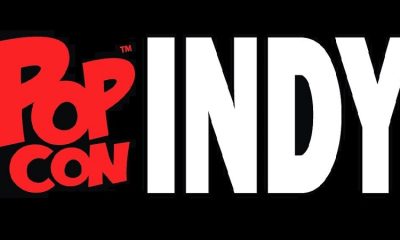Local News
Bill opposing IndyGo Blue Line expansion due to concerns from nearby residents

Indianapolis, Indiana – The Irvington neighborhood’s residents informed Indiana lawmakers on Thursday that a bill that would stop a bus rapid-transit line would make their streets less secure.
In a Statehouse committee chamber on Thursday morning, dozens of East Side companies and citizens testified in favor of a bill that would halt the building of the Blue Line. Legislators, according to Irvington resident and company owner Jordan Gleason, will be less able to attract economic development to the area if the proposal is blocked.
Fellow resident Nathan Height said he often has close calls with cars speeding along Washington Street. “I’m afraid to walk to some businesses because it is so busy,” he said. “I really invite anybody who has hesitations about the Blue Line or rapid transit in general to come take a walk with me.”
After the now functioning Red Line and the Purple Line, which is presently during construction, the Blue Line is the final of three planned IndyGo bus rapid-transit routes in Marion County. Much of the Blue Lie route would follow Washington Street and stretch from the airport to the town of Cumberland.
Company owners along the proposed route expressed concern that the presence of dedicated bus lanes will make it more difficult for customers to visit their establishments, which will reduce foot traffic.
Originally, Sen. Aaron Freeman’s bill would have completely prohibited any new bus rapid-transit lanes. At his request, a Senate committee on Thursday modified his plan to prevent new development until July 2025 while the state does additional research on the matter. Additionally, the committee inserted wording that expressly exempts the Purple Line from the law. The Republican from Indianapolis stated that he wanted to give legislators more time to compare shared, multi-use lanes with dedicated rapid-transit lanes.
“The federal government is pushing this. They’re pushing grants through dedicated lanes, or fixed lanes,” he said. “I think we as a general assembly should push back on that. There’s plenty of opportunity for shared lanes.”
The bill is now on its way to the whole Senate after passing the committee. If accepted, it would need to move to the House.
-

 Indiana2 weeks ago
Indiana2 weeks agoAmazon Web Services is investing $11 billion to build a new data center in Indiana
-

 Local News2 weeks ago
Local News2 weeks agoDemocrat Jennifer McCormick gets teacher union endorsement in race for Indiana governor
-

 Local News2 weeks ago
Local News2 weeks agoTo construct new battery-electric vehicles, Toyota plans to expand its Indiana plant
-

 Local News2 weeks ago
Local News2 weeks agoThe North Walnut area’s new student housing development has been approved by the Bloomington Plan Commission
-

 Local News2 weeks ago
Local News2 weeks agoMayor of Bloomington “stands” with demonstrators and faults IU and state police for their handling of the matter
-

 Indiana2 weeks ago
Indiana2 weeks agoFree Fishing Days will let Indiana residents go fishing without a license
-

 Local News2 weeks ago
Local News2 weeks agoOfficials from Indiana meet with parents to discuss issues with the attendant care program
-

 Local News2 weeks ago
Local News2 weeks agoPop Con celebrates another big year






Leave a Reply